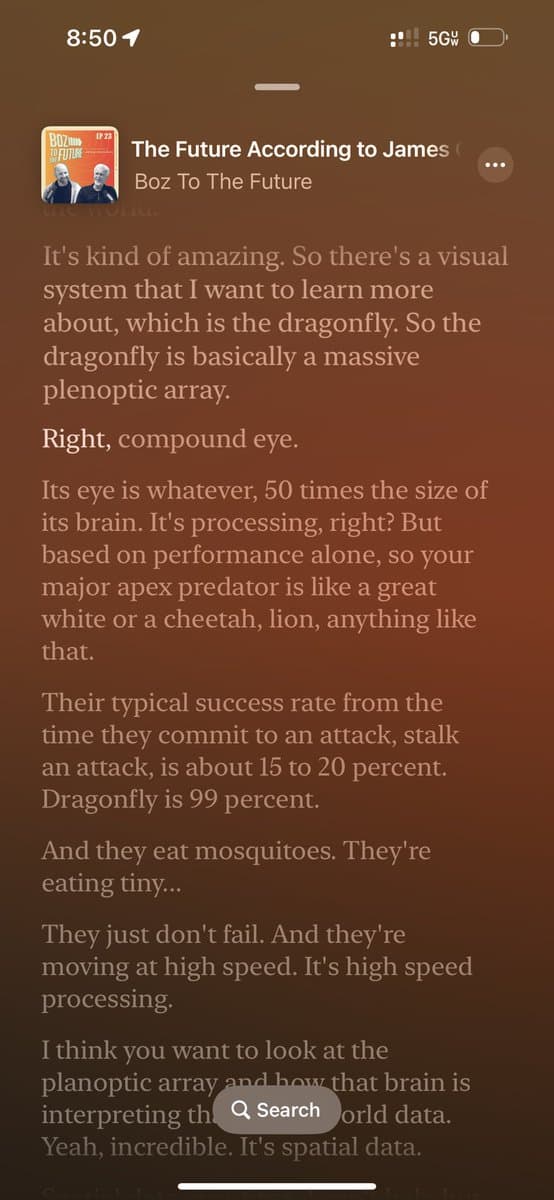James Cameron's 2025 Focus on Dragonfly Vision Highlights Biomimicry's Enduring Impact on Design

Hollywood visionary James Cameron is reportedly turning his attention to the intricate visual systems of dragonflies in 2025, underscoring a long-standing fascination with biomimicry and its intersection with advanced technology. This latest interest follows his pioneering work in artificial intelligence, famously envisioned with "Skynet" in the 1980s, and now extends to the natural world's most efficient predators. The tweet from "Soleio" highlights this shift, stating, "James Cameron envisioned Skynet in the 1980s. Now in 2025 he’s interested in the visual system of dragonflies. If beauty stems from longevity and efficiency, the dragonfly is the most beautiful predator."From here on, let's keep the content unchanged.Cameron's engagement with biomimetic design, which involves imitating biological systems for adaptive and efficient solutions, has been a central theme in his cinematic endeavors, including films like Avatar and The Abyss. A recent academic paper, "Exploring Biomimetic Design in the Films of James Cameron between Biomimicry and the Evolution of Artificial Intelligence" (published November 1, 2025), details how his work consistently merges nature-inspired elements with cutting-edge digital animation and AI to create immersive worlds. This approach extends beyond aesthetics, integrating ecological relationships and adaptive systems into narrative and visual structures.The dragonfly's visual system is a marvel of natural engineering, renowned for its exceptional efficiency and longevity. These insects possess compound eyes that provide a nearly 360-degree field of view, superior motion detection, and rapid processing capabilities, far surpassing many traditional camera systems. Research into biomimetic vision sensors often draws inspiration from insects like dragonflies and houseflies to develop advanced optical technologies for applications ranging from autonomous micro-aerial vehicles to specialized imaging.The tweet's assertion that "If beauty stems from longevity and efficiency, the dragonfly is the most beautiful predator" resonates with the principles of biomimicry, where nature's optimized designs offer powerful lessons for human innovation. Cameron's continued exploration of such natural phenomena, alongside his historical contributions to AI concepts, positions him at the forefront of integrating biological intelligence with technological advancement. This ongoing dialogue between nature and technology promises to inspire future breakthroughs in design and engineering.